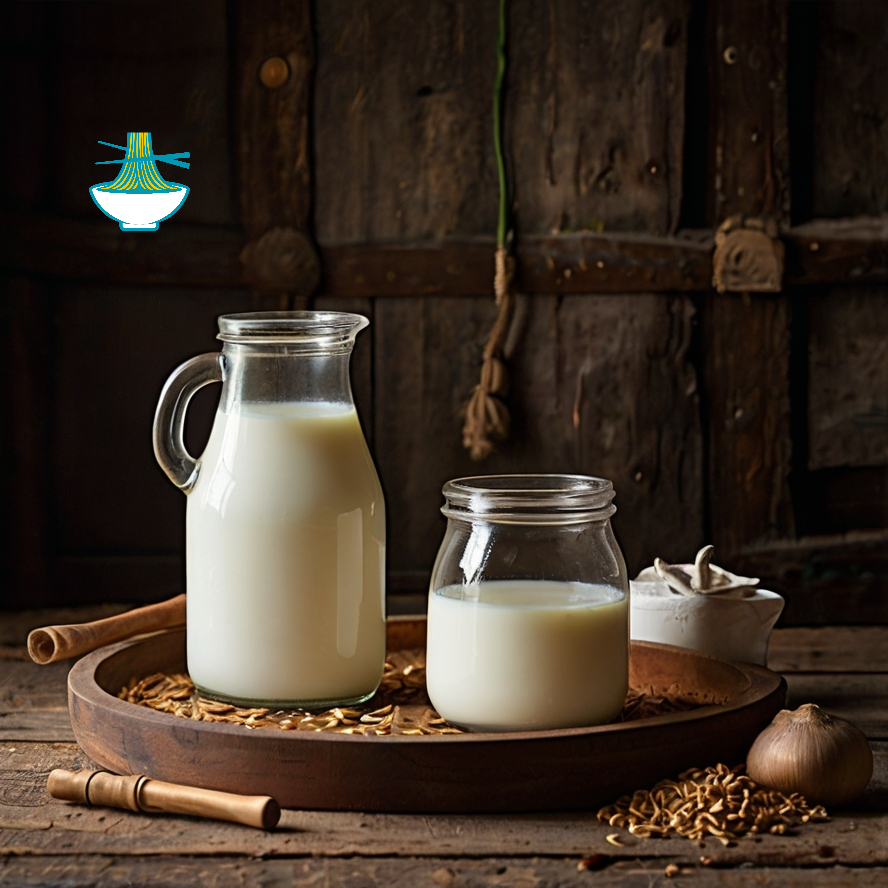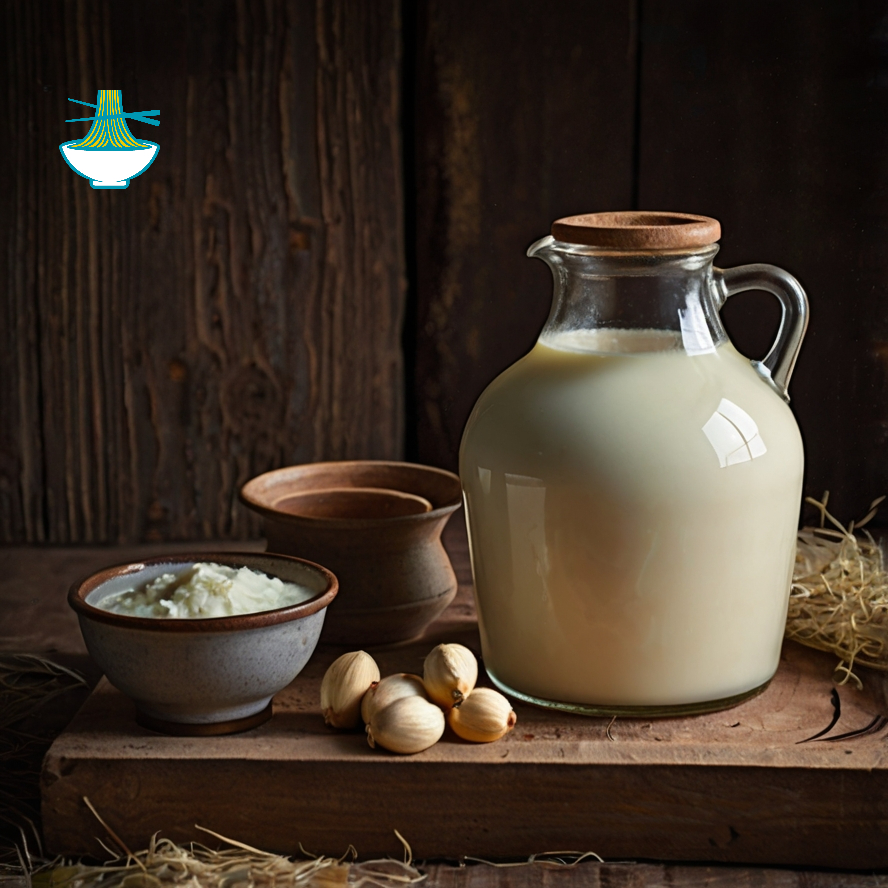Kumis, a traditional beverage, is crafted through the fermentation of mare's milk. Its origins trace back centuries, particularly among nomadic cultures like the Mongols and Kazakhs. The process involves inoculating fresh mare's milk with specific bacteria, typically lactobacilli, which convert lactose into lactic acid, resulting in a tangy flavor profile. Historically, kumis held cultural significance, often consumed during celebrations and revered for its purported health benefits. Today, it remains a symbol of tradition and craftsmanship in Central Asian regions, with variations in preparation methods across different cultures.
Ingredients:
- Fresh mare's milk
Method:
1. Start with fresh mare's milk.
2. Pour the milk into a clean, sterilized container.
3. Allow the milk to naturally ferment at room temperature for several hours to several days, depending on desired tartness and fermentation level.
4. Stir the milk occasionally during fermentation to ensure even fermentation.
5. Once fermented to your preference, refrigerate the kumis to slow down fermentation and preserve its flavor.
6. Serve chilled and enjoy the tangy, slightly effervescent beverage.
Nutrition Value:
Fresh mare's milk is a nutrient-rich liquid with various health benefits. Here's a breakdown of its nutritional composition per 1 cup (about 244 grams):
- Calories: Approximately 130 kcal
- Carbohydrates: Around 12 grams
- Protein: About 8 grams
- Fat: Roughly 7 grams
- Sodium: Approximately 100 milligrams
- Cholesterol: Around 20 milligrams
Nutritional benefits:
1. Protein: Mare's milk is a good source of protein, which is essential for building and repairing tissues, supporting immune function, and producing enzymes and hormones.
2. Calcium: It provides a significant amount of calcium, vital for bone health, muscle function, and nerve transmission.
3. Vitamins: Mare's milk contains essential vitamins such as vitamin A, important for vision and immune function, and vitamin D, crucial for bone health and immune function.
4. Minerals: It contains minerals like phosphorus, magnesium, and potassium, which play roles in bone health, energy metabolism, and muscle function.
5. Healthy fats: Mare's milk contains healthy fats, including omega-3 and omega-6 fatty acids, which support heart health, brain function, and inflammation regulation.
6. Low in lactose: Compared to cow's milk, mare's milk is lower in lactose, making it potentially easier to digest for individuals with lactose intolerance.
Overall, fresh mare's milk provides a nutritious alternative to cow's milk, offering a balance of essential nutrients with potential benefits for bone health, muscle function, and overall well-being.


Comments